Mad Detective
Introduction
I'm something of a novice when it comes to the films of Johnnie To. With Hong Kong cinema, my interests lie more in the direction of comedy kung fu, rather than hard-boiled police action movies and journeys into the criminal underworld. People raved about Election, films like Infernal Affairs came, were remade, and went, and it really all just passed me by. Then I actually watched two Johnnie To films, Running Out Of Time, and Fulltime Killer, and I realised just what I was missing out on. Johnnie To takes a well-worn and even tired genre, and infuses it with energy, originality and vitality in such a way that it feels as if you've never seen anything like these films before. Mad Detective is a buddy cop movie with a difference; one of the buddies is afflicted with a mental illness. That doesn't seem so original you may think, after all, Monk has been suffering from OCD on television for years, while Mel Gibson was the original screen nutter as Martin Riggs in Lethal Weapon. But the thing is that Riggs was never really nuts, just charmingly unhinged, while Monk's ever-increasing litany of idiosyncrasies is part of the entertainment. Detective Bun on the other hand is the sort of man who slices off his own ear and presents it to his chief as a retirement present.
The thing is that Bun is also a preternaturally gifted detective with a phenomenally high success rate, albeit through a quirky methodology. He places himself in the shoes of the criminals and the victims, and relives the crimes in an attempt to understand them. It something that impresses rookie detective Ho on his first day on the team, as Bun investigates a suitcase murder. He goes as far as sealing himself up in a suitcase, and having Ho throw him down a flight of stairs to get into the mindset of the killer. Then comes the ear slicing incident, and Bun finds himself out of work, and with a prosthetic ear. Five years later, Ho has worked his way into a position of responsibility, although it also means that he is the one who has to solve the 18-month disappearance of a policeman. Wong Kwok Chu and Ko Chi Wai were on a stakeout, investigating an Indian criminal, when a chase ensued, and Wong vanished. The problem is that Wong's revolver has since been used in a series of crimes.
Ho hits a dead end in the case, recalls the genius detective Bun, and decides to ask him for help. At his apartment, Bun is enthused by the idea of coming back to work, but his wife disagrees, fearful of his safety and sanity. A row ensues, but Bun is adamant that he gets back to doing what he does best. The hitch is that Bun's wife isn't actually there, and Ho is watching a man arguing with thin air. It turns out, that aside from this foible, Bun actually sees other people's true inner selves, he can see the little voices that convince teenage girls to shoplift, and the abusive true feelings that people mask with friendly faces. Going back to the Wong case means starting from the beginning, and that means talking to his partner Ko Chi Wai. Bun is shocked to see him surrounded by a chorus of seven inner selves.
Picture
A recent film gets a clean, decent 2.35:1 anamorphic transfer. The downside is that it's an NTSC disc, meaning an ever so slightly lower resolution, as well as a wee bit of aliasing. The upside is that it isn't an NTSC-PAL conversion, which is a horrendous compromise that many Asian films get in the UK, and which at times offers the worst of both worlds. Detail levels are good, as is the contrast, and that is certainly important in a film like Mad Detective, which plays heavily on mood and atmosphere, light and shade. Some scenes even veer towards film noir territory. Note that the Bluray disc is released on the same day if you want that extra clarity and have the equipment for it.
Sound
You have a choice of DD 5.1 and DD 2.0 Cantonese, with optional English subtitles. The dialogue is clear, but the surround is pretty front focussed, with just a hint of ambience making its presence felt in the rears. The film works well enough, but it isn't as expressive as it could have been.
Extras
The disc gets a jacket picture along with the animated menu screen, which is nice. There are also a decent amount of extras on the disc.
The Q & A with Johnnie To lasts 33 minutes, and takes place at the Cinematheque Francaise, just after a showing of his earlier film, The Mission. Quite obviously there is a fair bit about this film, and his career in general. He mentions Mad Detective 13 minutes from the end. It's in French and Cantonese, and subtitled in English.
The Cast Interview was filmed at a festival in Italy, lasts 16 minutes and features a general chat with actors Lau Ching Wan (Bun) and Lam Suet.
The Interview with Johnnie To lasts 21 minutes, was filmed in France this year, and turns out to be another Q & A session, a little more personal and intimate than before, as he fields questions from a room full of journos. I switched off after five minutes, as Mad Detective hadn't been mentioned once up to that point.
And that's the problem with these extras, they are far too general, and are only fleetingly connected with this film. The cast interviews are closest, as the actors are actually promoting this film, but the questions are all about technique, and craft, and quite frankly both of them look bored. I wanted to hear more about this film in particular, and while over an hour of extras looks good on paper, if they aren't pertinent to the main feature, then their worth diminishes greatly.
The extras finish off with the UK theatrical trailer, and apparently there is a sixteen-page booklet with the retail release. I just received the check disc, so I can't comment. Apparently another 33 minutes of featurettes will be available to view on the website, www.maddetective.com on the day of the DVD's release.
Conclusion
We all start out as naïve innocents when it comes to film. As children, we're in it for the pretty colours and the fart jokes, and every successive film is the best thing we've ever seen. Yes, that includes Condorman. But somewhere in our second decade, we learn to discriminate, to assign levels of good and bad, actually choose not to watch something, at which point our parents give praise that they never have to watch something like Beverly Hills Chihuahua ever again. But then the balance tips in our third decades, especially for cinema nuts like me, as the number of movies watched begins to rival the number of hot dinners eaten, and discrimination turns to cynicism. Once you've seen one slasher horror, you've seen them all, your tolerance for beefcake summer action movies diminishes, and the buddy cop movie is a dead genre to you after Lethal Weapon 16: They Really Are Too Old For This s***. Then along comes a film like Mad Detective, and you remember what it felt like to be taken into a cinema for the first time, with your dad holding your hand, guiding you into a whole new world.
Mad Detective takes the buddy cop genre, rips out all the tropes and clichés and then rewrites all the rules. At the heart of the film is the titular mad detective, but the thing is that it isn't just a quirk or character trait, Bun is truly afflicted with a mental and emotional illness, and Lau Ching Wan brings that illness to vivid life. It could have been played for laughs, made the butt of jokes, but the seriousness of his problem is immediately made clear at the start of the film, when he takes a blade to his own ear. He's a man obsessed and driven by solving crime, he's a gifted genius at getting inside the heads of criminals and their victims, but with that genius come its concomitant tortures. It's an unsettling and unnerving watch, because it is played absolutely straight, but it's for that reason that the film succeeds, and succeeds brilliantly.
We as the audience are just like Detective Ho when he meets Bun, his obvious skill as a profiler has been made clear at the start of the film, as have his instabilities, and when we meet him with his 'imaginary' wife, it looks as if he's too far gone to help. Then Bun makes the statement that he can see people's inner selves, and things get confusing. It's because we see Bun's point of view, alternating with the real world that we begin to question whether he may actually be right, especially when these inner selves actually help him solve the crimes. It's like the old idea of little saintly and satanic versions of yourself, sat on your shoulder, alternately offering temptation and restraint. Maybe Bun isn't insane, maybe he has the ability to visualise someone's inner conflict as a visual metaphor. At some point in the film, the audience is liable to accept Bun's worldview, simply because it works, and after all he does get results. Ho starts by humouring him, and then seriously considers whether or not Bun is actually seeing what he says he sees, and that everyone else is just blind.
Of course such romantic ideas aren't the province of this film, and there are no simple answers to explain Bun's talents, or his illness. Right up to the final scene, you're left uncertain as to whether he's right or wrong, whether the suspect is actually guilty, or a victim of the ravings of a lunatic, of whether Ho is doing the right thing or not by actually trusting in Bun. It's a complex rollercoaster of a story, and just as thrilling. It's also darkly funny at times, and because it's played completely deadpan and straight, the comedy works all the better for it. The climax of the film is a peach, with a hilarious twist in the tail. It can be a little too convoluted at times, and I lost the thread with a little procedural rigmarole with a couple of police revolvers, and you also have to accept the conceit that Bun's death defying leaps of logic are enough to arrest and convict a suspect without significant supporting evidence, but this film is still the best thriller I've seen this year. It's well worth making some time for, even if the extras that come with it aren't all that rewarding.
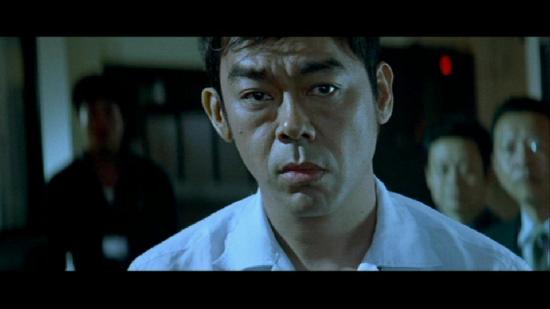
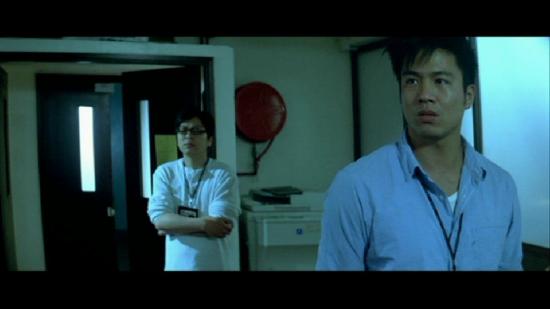
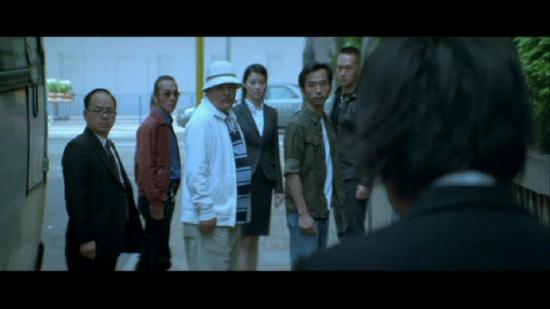
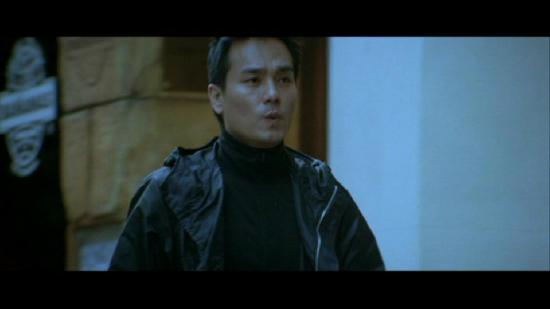
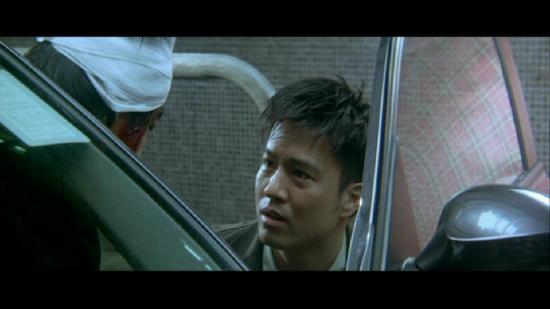
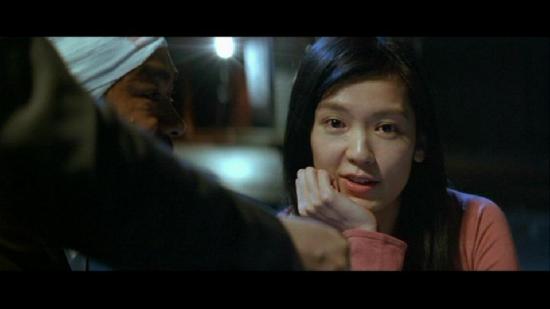
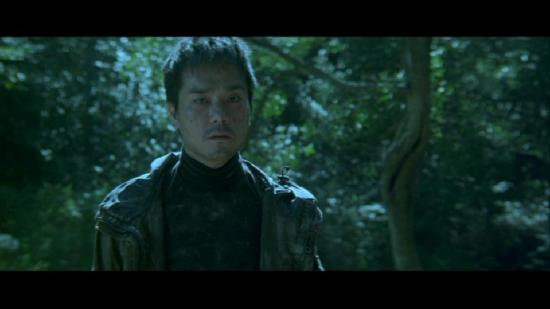
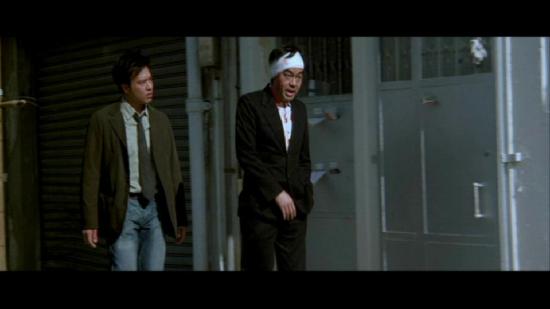
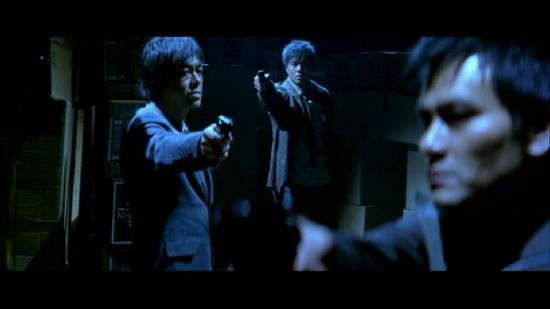
Your Opinions and Comments
Be the first to post a comment!